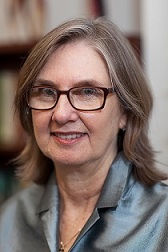A new survey of young people ages 10 to 18 finds 35 percent think prescription stimulant abuse is a big problem with their peers, and 15 percent said they had used stimulants at some point. One-tenth of kids said they had diverted medications in some way.
The survey found 7.5 percent said they had used stimulants such as Adderall or Ritalin in the last month; 3.9 percent said they took the drugs for nonmedical reasons. The findings were reported at the recent annual meeting of the College on Problems of Drug Dependence, by Linda B. Cottler, PhD, MPH, Chair of the Department of Epidemiology in the College of Public Health and Health Professions and College of Medicine at the University of Florida.
The study was designed to understand current levels and signals of misuse, abuse and diversion of prescription stimulants in youth ages 10 to 18. The researchers interviewed 11,000 teens in Seattle, Los Angeles, Denver, Houston, St. Louis, Cincinnati, Tampa, Philadelphia, New York and Boston. The researchers went to places where teens congregate, such as malls, cinemas and skate parks, and interviewed participants from urban, suburban and rural areas. “We were surprised to find prescription stimulant rates were up in rural areas,” Dr. Cottler said.
The teens were asked to anonymously fill out two booklets, which took about 15 minutes. In one booklet, they were asked what they knew about drugs and prescription stimulants. They were shown pictures of drugs, and asked if they knew what they were. A second booklet showed pictures of stimulants, and asked whether they used them. If they did, they were asked where they got them, how they got them, how often they took the drugs and why.
Participants were also asked how they would prevent kids from using other people’s prescriptions, and how should young people be told what prescription drugs are and what harm they can cause. Suggestions ranged from requiring fingerprint matches to allow prescription bottles to open, to requiring teens to have their medications dispensed at the pharmacy. Some said it can’t be prevented, Dr. Cottler noted.
“Teens said they want to be warned truthfully about prescription drugs, but they don’t want the danger exaggerated. They want to make their own decisions,” she said. The study confirms that parents and other family members need to be cautious about where they leave their medication, Dr. Cottler observed. “We need to reduce access,” she said. “We also need to teach young people who are taking prescribed ADHD medication that other kids would like to get their hands on their drugs, so they have to be careful and not share them.”
Published
June 2013

